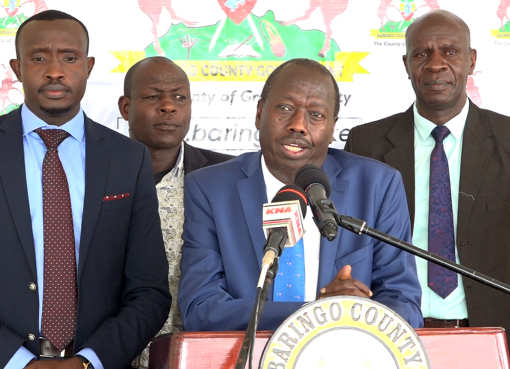The new political dispensation has threatened the resilience of Kenya’s democratic institutions that are necessary in ensuring accountability based on the principles of separation of powers, as guided by the constitution.
Speaking in Nairobi on Monday in a forum organized by Uwazi Consortium, former Deputy Speaker of the National Assembly, Farah Maalim said that civil society organizations have become partisan after allowing themselves to be influenced by political parties instead operating independently.
The civil society has been subject to partisan interests after the handshake between President Uhuru Kenyatta and former Prime Minister Raila Odinga, and the new development has weakened civil society’s oversight and advocacy role against bad governance.
“CSOs should be the vigilante of social justice, whether there is handshake or not,” said Maalim, and added that CSOs, being the brain of the political class, ought not be co-opted into government or opposition but should instead seek social justice on issues affecting the society.
He further urged the CSOs to fill the gap that was left after the handshake whereby the government and the opposition merged.
The Dean of the School of Law in Africa Nazarene University, Dr. Duncan Ojwang, also supported Maalim saying that the CSOs needed to fill the gap beyond the political society.
He echoed Maalim’s sentiments that CSOs were not doing very well after the handshake because in the past, they were working together on issues with the opposition, but today they follow individuals and political personalities.
“CSOs were riding on the back of the opposition and that is where the problem came after the post-handshake era, the CSOs were left on the horns of a dilemma. When the individual shifts politically, then the CSOs are left hanging,” Dr. Ojwang said.
Ojwang stated that the civil society should fill the vacuum beyond the political society arguing the opposition has been weakened after the handshake
East African Centre for Law and Justice C.E.O Joy Mdivo said that the handshake had nothing to do with the common mwananchi but the comfort of two individuals adding that the Building Bridges Initiative (BBI) did not include CSOs, a fact which was reiterated by USIU professor of History and International Relations Prof. Macharia Munene.
The Uwazi Consortium brings together CSOs implementing programmes in Kenya in the areas of democracy, governance and human rights.
According to Civil Society Organizations (CSOs), the historical significance of civil society is to protect and deepen democracy in Kenya, from the dark periods of one-party autocratic regime to the current dispensation of multi-party democracy.
By Rahab Wanjiru and Ian Munjuga




